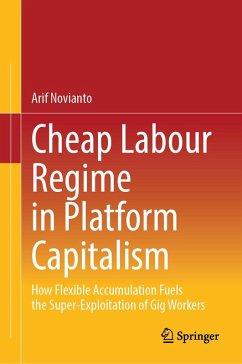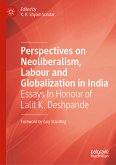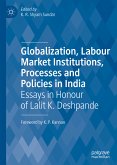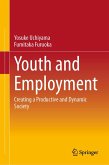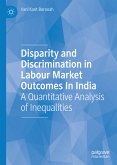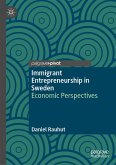Drawing on Michael Burawoy's labor regime theory, the author examines how labor is governed and exploited under platform capitalism. Through a rigorous mixed-methods research design the book identifies five structural pillars of the "cheap labor regime": the persistent oversupply of labor, hyper-competition between platforms, neoliberal state complicity, labor processes engineered for maximum surplus extraction, and the erosion of workers' bargaining power. Indonesia, with an estimated 5 million platform workers, stands as one of the clearest examples of super-exploitation in the digital economy. This book dissects the mechanisms that normalize such conditions, exposing how labor is commodified and discipline enforced not only through economic necessity but also through the architecture of the platforms themselves.
This book is essential reading for scholars, students, policymakers, labor organizers, and readers interested in critical perspectives on the future of work. It delivers fresh insights into how digital capitalism shapes labor relations, particularly in the Global South-offering a powerful framework for understanding resistance, inequality, super-exploitation and the enduring allure of platform work.
Dieser Download kann aus rechtlichen Gründen nur mit Rechnungsadresse in A, B, BG, CY, CZ, D, DK, EW, E, FIN, F, GR, HR, H, IRL, I, LT, L, LR, M, NL, PL, P, R, S, SLO, SK ausgeliefert werden.

